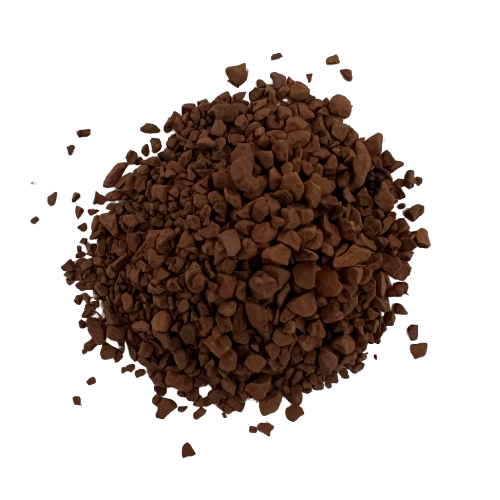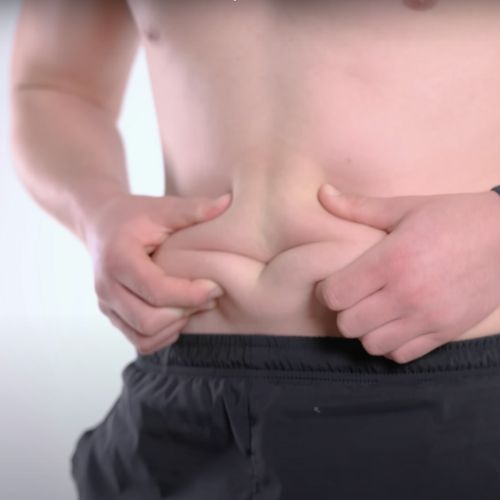If you have landed here, you have probably heard caffeine may have some benefits for weight loss. I’m going to take you through a somewhat brief but decisive science-backed analysis of whether there could be a connection between your morning cup of coffee and your weight loss goals.
Key Findings
Understanding Caffeine
Caffeine is a psychoactive compound whose most famous natural source is the coffee bean. It is present in dozens of other plants including cocoa, tea, kola nuts, yerba mate and guarana. Guarana seeds have four times as much caffeine as coffee beans. In weight loss supplements, caffeine is included in the form caffeine anhydrous. It is an odorless bitter white powder.
Caffeine’s purported abilities in cutting down excess weight is the primary reason it is a fixture of health supplements. In fact, no other single ingredient is as common in fat burners. Even when caffeine is not explicitly listed as an ingredient, it may be present indirectly in the form of plant extracts like green tea, green coffee, guarana and yerba mate.

Studies
Given tea and coffee are by far the two most widely consumed beverages in the world and that both contain caffeine, it is perhaps unsurprising this compound has been studied extensively. That includes its ability to support weight loss.
Body Fat
In 2020, researchers from Harvard’s School of Public Health ran a 24-week investigation of coffee’s impact on the risk of type 2 diabetes. 126 overweight adults were placed on either four cups of regular coffee or four cups of a coffee-like placebo. The result was that individuals who were on the four cups of coffee saw a 4 percent reduction in body fat on average.
It was a somewhat accidental finding as this was not what the study primarily set out to establish. The researchers suggested the fat loss was due to an increase in metabolism caused by the caffeine.

Weight Loss Maintenance
Keeping lost weight off is harder than losing weight. A meta-analysis of 29 weight loss studies established that subjects gained more than 50 percent of the lost weight within the first two years and more than 80 percent within five years.

In 2015, researchers examined the consumption of caffeinated beverages by 494 individuals that had successfully maintained weight loss and 2129 individuals representative of the general population. They found that weight loss maintainers took substantially more cups of caffeinated beverages per day compared to the general population. So caffeine might support weight loss maintenance.
Basal Metabolic Rate
Your basal metabolic rate (BMR) is the rate at which your body burns calories when you are resting. The higher your BMR, the more likely you are to lose weight and maintain weight loss.
In a 1995 study, twelve healthy young male subjects consumed 150 ml of decaffeinated coffee either with or without 200 mg of added caffeine. BMR was measured before consumption, immediately after and then three hours later. Participants that were placed on caffeine experienced an immediate increase in their BMR that stayed elevated for the three hours after consumption.
An earlier study looked at the effect of oral administration of 100 mg of caffeine over 2 hour intervals in a 12-hour day. It came to a similar conclusion — it increased energy expenditure by 8-11 percent.
Appetite
In 2014, researchers examined the effects of coffee consumption on 84 healthy subjects over a four week period. Participants experienced a decrease in body fat and an increase in the mood enhancing hormone serotonin.
Notably, subjects showed a decrease in the levels of the ghrelin. This is important given that ghrelin is the hormone responsible for feelings of hunger. The study therefore suggested caffeine could play an important role in regulating satiety.

Exercise Endurance
Caffeine is a popular ingredient in sports gels and energy drinks. A 2001 review sought to establish caffeine’s role in competition and training. It found that it boosts speed, output and training endurance and resistance to fatigue.
The study suggested caffeine’s efficacy in this respect is due to its ability to create a favorable ionic environment in cells of active muscles. This is however contrary to a popular theory that insinuates caffeine enhances fat oxidation.

A 2012 study of caffeine’s impact on muscle performance placed twelve participants on either a placebo or a caffeine-containing drink. Those on caffeine showed improved muscle power.
Conclusion
You can add weight loss to caffeine’s other known benefits. As with anything good, moderation is key. Caffeine’s benefits are more likely when you keep your daily intake at no more than 400 mg per day. Most importantly, keep your doctor close when you embark on a weight loss plan. Get their consent confirming caffeine-containing supplements will be safe and appropriate for you.

